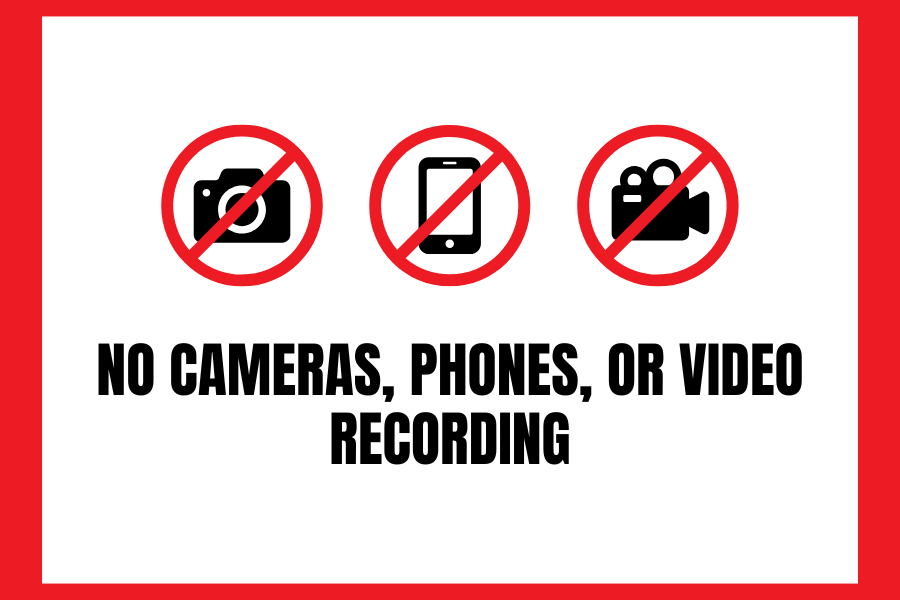Imagine going an entire day without your phone. No notifications lighting up your screen, no texts from friends, no endless scrolling through social media. For many teenagers, the thought alone sparks anxiety. But why is it so hard to disconnect, even for just 24 hours?
Since phones were created, there has been an ongoing debate about the usefulness or harm they cause. Every teenager is convinced they could survive a day without their phone, until they actually have to do it. Myself included. So, I decided to challenge myself and see how hard it really is. I chose a school day when I probably wouldn’t need it much. Though I kept it in my bag for emergencies, I actively avoided using it. I recorded every time I felt the urge to reach for it.
One of the biggest struggles I faced was the fear of missing out. Social media makes staying connected easier than ever, but it also makes it almost impossible to take a break. I had to watch my peers scroll through Instagram and play games while I couldn’t, making me feel like I was missing out on so much, even if it was just insignificant posts. Every time I heard someone’s phone vibrate on the table, I found myself reaching for nothing. FOMO makes phones feel like a lifeline to the world, and giving that up, even temporarily, feels daunting.
It’s not just about missing out on posts either. There’s also the pressure of staying in the loop with friends. I kept wondering if anyone had texted me or if there was something important I should be responding to. It’s exhausting constantly worrying about what you’re not seeing or hearing. Even when I knew I wasn’t missing anything major, the thought of missing something kept gnawing at me.
When I got my phone back and scrolled through the endless notifications, I realized I hadn’t actually missed anything important. But during those 24 hours, it felt like a small part of me was missing.
Phones have become more than just devices; they’re social hubs. Texting, Snapchatting, and commenting on Instagram are all part of my daily life. Without my phone, I felt completely isolated, like everyone else was hanging out without me. This constant connection isn’t just a habit; it’s a way of maintaining friendships and feeling included.
I also felt like I was being left out of conversations. Without access to group chats or social media, I had no idea what my friends were talking about or planning. Trying to jump into conversations felt impossible, like I was always one step behind. And even though I knew most of what I missed was meaningless chatter, the feeling of isolation was still real.
Another reason going phone-free is so challenging is that phones fill every spare moment. Waiting in line? Check your notifications. Bored in class? Scroll through TikTok. Phones provide constant entertainment and distraction, making them the perfect tool for avoiding boredom. Spending 24 hours without that distraction felt like an eternity.
Phones are the go-to solution for boredom because they provide endless content. Whether it’s binge-watching YouTube videos, endlessly scrolling through TikTok, or diving into the latest mobile game, there’s always something to occupy your mind. Without that, I felt restless and uncomfortable. It forced me to face boredom head-on, something I realized I hadn’t done in a long time.
For many teens, phones are a coping mechanism. Whether it’s watching comforting videos, playing games, or chatting with friends, phones offer an escape from stress and anxiety. Going without them can leave you feeling vulnerable and exposed to the very emotions you’re trying to manage.
Phones also serve as a security blanket. When I was feeling anxious or overwhelmed, my first instinct was to reach for my phone. Without it, I had to find new ways to manage my stress. It was uncomfortable, and at times it made me feel even more anxious. I realized how much I relied on my phone as a distraction from negative emotions.
Beyond the social and emotional reasons, there’s also a practical side to phone use. Phones are planners, alarm clocks, calculators, and cameras all in one. I didn’t realize how much we’ve incorporated them into our daily lives until I had to go without mine.
I needed my phone for basic communication, getting lunch, and even doing homework. Without it, my life got way more complicated. I had to use a traditional alarm clock, which isn’t always reliable. Whenever my parents needed to tell me something or my friends changed plans, they texted me, but during those 24 hours, I had to assume things were going according to plan. When my evening plans changed, I had no idea until the last minute.
Even getting lunch was more difficult. Like many others, I immediately lost my physical ID card with the barcode needed for lunch, so I usually just use my phone. Without it, I held up the line while they manually typed in my lunch numbers. And homework? Forget about it. I realized just how essential my phone was to my daily routine.
Phones have also become crucial for tasks like research, checking grades, or accessing school apps. The convenience of having everything in one place can’t be overstated. Without it, I had to constantly ask others for help, which made me feel even more disconnected.
Ultimately, the difficulty lies in how deeply embedded phones have become in everyday life. They’re not just gadgets—they’re integral to communication, entertainment, and stress management. The idea of spending 24 hours without one feels like losing a part of yourself.
But maybe the challenge is worth it. Taking a break from screens can open up opportunities to be present, reflect, and reconnect with the world in a more intentional way. It’s not easy, but it might just be a step toward finding balance in a tech-driven world.
What I learned from this experiment is that while my phone makes life easier, it also makes me feel dependent. Taking a break helped me recognize just how strong that dependence is—and made me wonder if maybe, just maybe, a little less screen time could be a good thing.






